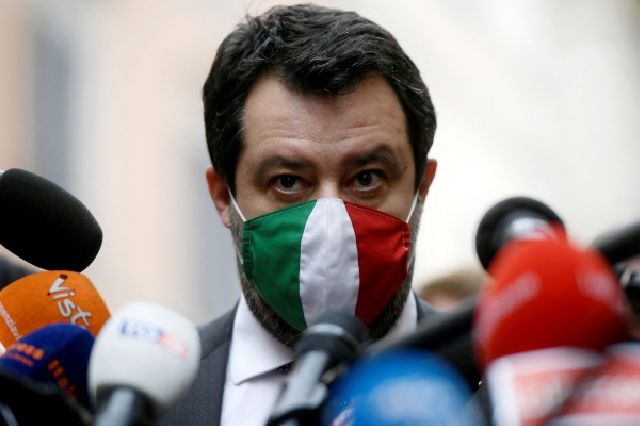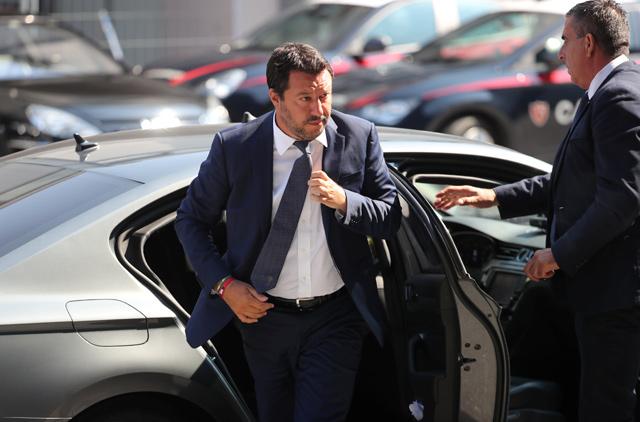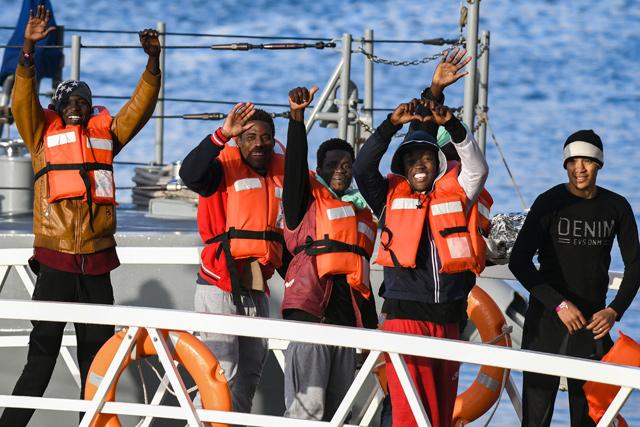You are here
EU ministers in Malta to thrash out new migrant system
By AFP - Sep 23,2019 - Last updated at Sep 23,2019
VALLETTA — Interior ministers from four EU countries meet on Monday in Malta to try to work out an automatic system to determine which countries will welcome migrants rescued in the central Mediterranean.
The ministers from France, Germany, Italy and Malta hope to end the long, drawn-out negotiations that have seen vulnerable asylum seekers including babies stranded at sea, sometimes for weeks.
The mooted automatic distribution scheme would only be a temporary solution until the current system, the "Dublin regulation", can be revised.
Critics have long argued that the regulation places an unfair burden on the Mediterranean frontier countries Italy, Malta, Greece and Spain.
Italy's new, pro-EU government has moved quickly to turn the page on the hardline anti-migrant policies pursued by former far-right interior minister Matteo Salvini, who closed the ports to those rescued.
A successful European migrant agreement would be a blow to Salvini, showing that cooperation gets better results than confrontation.
After a meeting last week, Italian Prime Minister Giuseppe Conte and French President Emmanuel Macron both called for a reform of Europe's "ineffective" policy.
Countries that did not volunteer to take migrants should face financial penalties, they argued.
"Europe has to be better prepared and stand with frontline countries like Italy, Greece, Malta, Spain and Cyprus," European migration commissioner, Dimitris Avramopoulos, said as he arrived for the Malta talks.
"Our priority is to save lives... the others who want to cross European borders illegally, they must know they will be sent back home," Avramopoulos said.
Finland's Interior Minister Maria Ohisalo is also attending the talks as her country currently holds the EU presidency.
Rotation?
In a sign of how things have changed over the last few weeks, Italy late Sunday authorised charity rescue vessel the Ocean Viking to disembark its 182 people rescued at sea in Messina, Sicily.
The decision "puts an end to five days of unnecessary suffering", said charities SOS Mediterranee and Doctors without Borders which operate the ship.
"It is urgent that a European agreement is found to put an end to these repeated stand-offs," the ship's search and rescue coordinator Nicola Stalla said.
At an informal meeting of foreign and interior ministers in Paris in June, 15 countries agreed to set up a "European Solidarity Mechanism".
Croatia, Finland, France, Ireland, Germany, Lithuania, Luxembourg and Portugal said they would "actively" take part.
But Hungary's nationalist Prime Minister Viktor Orban, rejected redistribution quotas in comments made during a visit to Rome on Saturday.
Monday's meeting in Malta will try to decide where those rescued can be relocated — and whether that covers just those fleeing war and persecution, or economic migrants too.
France and Germany are reportedly willing to receive 25 per cent of people plucked from the Mediterranean.
But they are not keen on Italy's idea for migrants to be sent to countries across southern Europe on a rotation basis.
Italy could take 10 per cent of new arrivals — a lower proportion because it has already hosted tens of thousands.
The number of migrants reaching Europe via the Mediterranean has dropped sharply in recent years. The UN's refugee body recorded nearly 115,000 arrivals in 2018, down from 170,000 in 2017 and over one million in 2015.
In Brussels, the European Commission said it welcomed the Malta talks and that it was looking forward to "the next step", a meeting of all EU interior ministers in Luxembourg on October 7-8.
"We stand ready to support such temporary arrangements both financially and operationally," Commission spokeswoman Mina Andreeva said of the possible migrant distribution mechanism.
Related Articles
ROME - Italian far-right leader Matteo Salvini avoided trial on Friday on charges he illegally detained migrants at sea, ending one of his l
ROME — Italy's far-right interior minister threatened on Sunday to send "back to Libya" nearly 180 people stranded for three days on an Ital
VALLETTA — Nearly 50 migrants stranded at sea for weeks aboard two rescue ships were headed for Malta on Wednesday after the island na

















